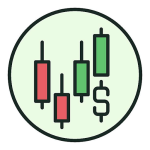The Cult of Productivity: A Race to the Bottom
There’s a chilling trend unfolding before our eyes, one that we’re celebrating with applause, LinkedIn endorsements, and endless TED Talks. The rise of artificial intelligence, automation, and so-called “productivity tools” is being sold as progress. But I can’t help thinking, if this is progress, why does it feel like we’re sprinting towards a cliff edge without a parachute?
When Nick Glynne, the boss of Buy It Direct, said his retail empire would cut two-thirds of its staff within three years thanks to AI and automation, the world barely flinched. The company plans to operate with the same revenue and the same activity with two-thirds fewer people. Think about that for a moment. That’s not innovation; that’s elimination.
This isn’t some dystopian film plot, it’s Britain in 2025. And what’s worse is how easily it’s being normalized. Every executive now seems to talk about “efficiency” like it’s a holy word, even when it means hundreds of livelihoods being erased in the name of faster output and cleaner spreadsheets.

Should humans and AI collaborate or compete? This image captures the modern dilemma as technology encroaches on human jobs.
The Dangerous Illusion of “Progress”
We are so intoxicated by the promise of efficiency that we’ve forgotten what work actually means to us as human beings. Work isn’t just about money, it’s about purpose, dignity, belonging. When you strip those away, when millions are told that a machine can do their jobs better, what exactly are they supposed to live for?
Yes, AI can analyse data faster, predict trends more accurately, and perhaps even write articles like this one. But what it can’t do is care. It can’t dream, empathise, or understand what it means to struggle. Yet we seem determined to hand over every human role, from warehouse pickers to graphic designers, to a system that doesn’t need sleep, food, or fairness.
In this blind race for productivity, we’ve forgotten the most important metric of all: the human cost.
A Society on Autopilot
Let’s be brutally honest, what is the endgame here? When executives talk about “reducing headcount” as if people are disposable assets, what happens when there are no jobs left to reduce?
Will we all live on state-funded “universal income,” endlessly scrolling through AI-generated entertainment while the robots run logistics, banking, law, and media? It sounds far-fetched, but it’s the logical endpoint of the path we’re on.
And the most disturbing part? We’re cheering it on. Each new AI milestone is met with excitement, not reflection. Each announcement of mass layoffs due to “automation” is framed as a bold strategic move. Somewhere along the way, we’ve confused technological advancement with moral advancement, as if being faster automatically means being better.
But progress without purpose is not progress at all. It’s self-destruction disguised as innovation.
The Myth of the “AI-Assisted Future”
Let’s be clear, AI has enormous potential to make human lives better — when it’s used with us, not instead of us. There’s a world of difference between technology that supports human creativity and one that replaces it entirely.
AI should be a tool, not a takeover. It should help a nurse spend less time on paperwork and more time with patients. It should help a teacher tailor lessons, not make the teacher redundant. It should empower artists, not plagiarise them.
Yet too many companies view AI not as an aid, but as a shortcut, a way to save costs, not save humanity. We’ve built machines to replace humans, and then we marvel at their ability to outperform us.
It’s madness, plain and simple.

As automation advances, human employees risk being pushed aside, highlighting the stark reality of AI-driven job displacement.
Driving Off a Cliff With No Parachute
There’s something deeply unsettling about the pride with which leaders talk about cutting “headcount.” It’s dehumanising language, “headcount,” “resources,” “redundancies.” These aren’t just numbers. They’re people with mortgages, families, and futures.
When we replace human beings with algorithms, we’re not just losing jobs — we’re losing empathy. We’re dismantling the social fabric that gives life meaning.
So yes, we can make warehouses faster. We can automate call centres. We can even build machines that paint, write, and sing. But at what cost? What is the purpose of existence if we simply engineer ourselves out of relevance?
We seem to have forgotten that efficiency isn’t the highest virtue. Humanity is.
The Wake-Up Call
I’m not against AI. Far from it. But I’m against the blind obsession, the belief that faster is always better, that cheaper is always smarter, that replacing people with machines is somehow inevitable. It isn’t.
We still have a choice. We can build a future where technology enhances our humanity, not erases it. Where AI serves people, not profits. Where innovation is measured not by how many jobs it cuts, but how many lives it improves.
Because if we don’t stop and think now, we’ll wake up one day in a perfectly optimised world, with nothing human left to save.
People Are Asking: The Future of Work in an AI-Driven World
Will AI really replace most human jobs?
Experts warn that while AI can automate many repetitive tasks, it’s increasingly encroaching on creative and professional fields too, from journalism to law. The real question is not if AI will replace jobs, but how fast it will happen and what society will do to adapt.
Can AI and humans work together instead of competing?
Absolutely, if implemented responsibly. The most sustainable future is one where AI assists human workers, boosting productivity without erasing the need for human judgment, empathy, and creativity.
What jobs are most at risk from automation?
Warehouse staff, customer service agents, graphic designers, administrative assistants, and even junior programmers are already seeing roles replaced or reduced by AI systems.
How can we protect workers as AI expands?
Governments and businesses need to invest in retraining, ethical AI regulations, and new industries that value human skills. Without that, we risk mass unemployment, and a crisis of purpose.
Is AI progress outpacing our moral responsibility?
In many ways, yes. Technology is advancing faster than ethics or policy can keep up. The world is asking whether we can balance innovation with humanity, or whether we’ve already handed over the steering wheel.













